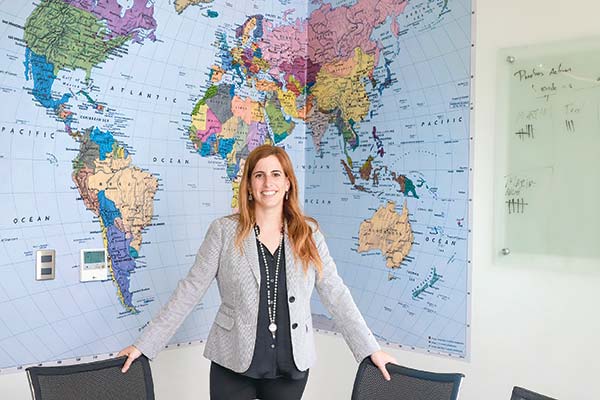
This article first appeared in Diario Financiero on April 14, 2021.
The opportunities offered by the advisory services offered to the parent companies of companies present in the region led BH Compliance to open an office in Miami after years of experience in Latin America.
After making its debut in 2009 as a result of the Law on Criminal Liability of Legal Entities (20.393) -which established sanctions for natural persons who commit certain crimes to benefit the company-, and playing a pioneering role in the certification of prevention models, today BH Compliance has established itself as a leading player in this field.
“Mainly, what we do is fight corruption from the private sector. Specifically, we monitor compliance models to help companies create a culture of compliance. We monitor that all the processes they have in place to prevent crimes from occurring are actually being complied with”, explains the firm’s executive director Susana Sierra.
In the midst of this work in our country, they began to set their eyes on other markets and since 2014 they developed advisory work for companies in different Latin American countries, a period in which they monitored their respective policies and procedures. As a result of this work, the executive points out that they already have clients in Peru, Colombia, Argentina and some Central American countries.
Although she points out that in this phase ‘we never reached a sufficient mass of clients to be able to open an office’, she does value the experience gained with the alliances they established in the region. This, together with the fact that ‘Chile is light years ahead in these matters with respect to the rest of Latin American countries, and we are much more advanced’.
From this first stage beyond the Chilean borders, the firm sought to move to the next level by landing in the United States with an office in Miami.
- Why did you decide to enter the U.S. market?
-We want the parent companies of U.S. companies that have subsidiaries in Latin America -where we have the greatest expertise- to have the peace of mind that compliance is being complied with in all their subsidiaries in Latin America. This will allow the parent company to say, for example, that a market has problems because the subsidiary is not complying with compliance. So we give them a kind of dashboard of this measurement.
We already have the company BH Compliance United States, and what we are doing now is having meetings with clients there through video calls. Whether we will be there alone as a company or in alliance, that is something we have not yet defined. Although today we are going alone, we do not rule out the possibility of a partnership.
- How do the laws in the United States that seek to avoid situations of corruption in companies work in the United States?
– There, the penalties are much higher. One of the big examples is the SQM case where it was sanctioned with more than US$ 30 million. In addition, there is an important reputational issue. There, if a company commits an act of corruption, it can easily end up killing the company.
- In the case of Chile, how do you evaluate the operation of the Law on Criminal Liability of Legal Entities?
-Chile was the first country in Latin America to have a Law on Criminal Liability of Legal Entities. Before 2009, two interesting things happened: we thought that there was no corruption in Chile and, in addition, we did not talk about compliance, it did not exist, and for something very simple: if we said in Chile that there was no corruption, why would we do anything to prevent it.
For the same reason, in 2009 not much happened with the Law because we did not take it into account, but as we began to have cases of corruption and the Law began to be applied timidly, it did produce a shake-up in companies, at least in the largest ones. This law brought compliance and today, regardless of the fact that it is still a long way off, companies have started to implement compliance.
- How do you analyze the regulations that seek to prevent corruption in Latin America?
-Usually they are the same laws on criminal or administrative liability of legal persons. In that, Chile is much more advanced.
The leap that is missing in Latin America is to really reach the creation of a compliance culture, because it can happen that the companies really take it or that this ends up only on paper. That is what we have had the hardest time working on in these countries.
By: Susana Sierra










